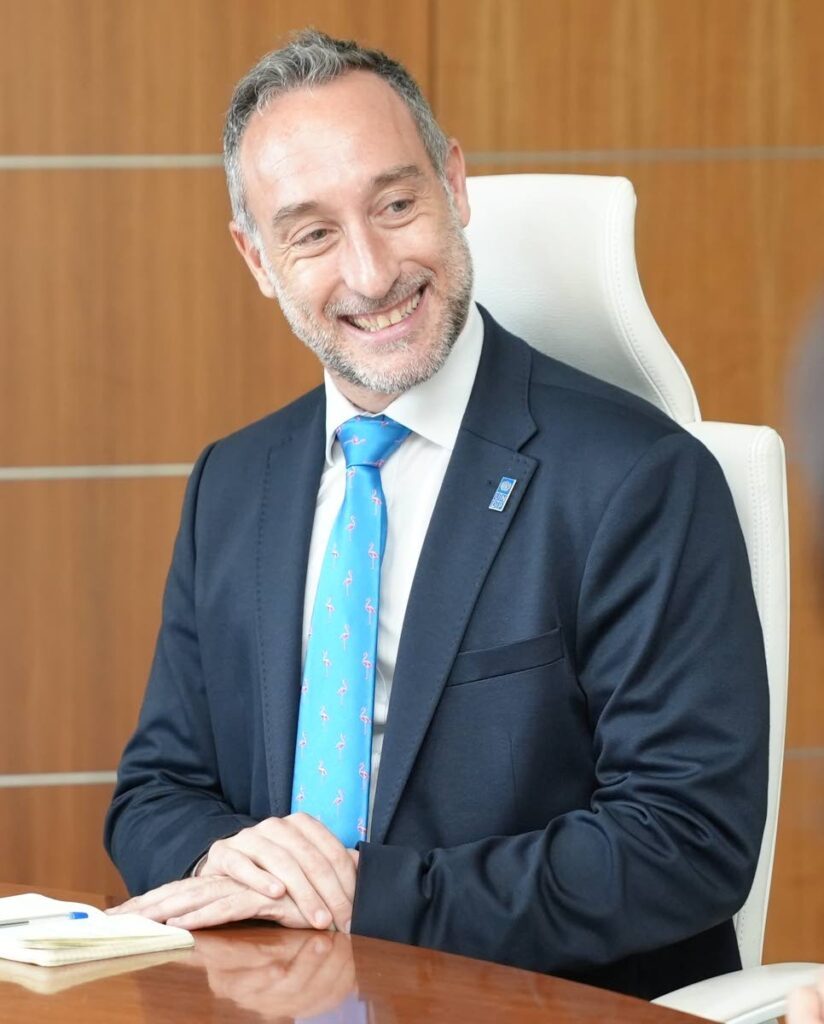Trinidad and Tobago at lead of call for global reforms

UGO BLANCO
AT THE recently concluded United Nations General Assembly, a clear message emerged: the world needs a reset. The global challenges we face – conflict, climate change, and economic instability – cannot be tackled with fragmented, isolationist policies. For small island states like Trinidad and Tobago, these discussions are even more urgent, as achieving sustainable development requires a shift from business as usual to bold, systemic changes.
The call for a reset was echoed in debates on ongoing multiple crises, sustainable financing, global governance and climate resilience. Leaders from developing countries, including TT, emphasised that the international financial architecture must prioritise equitable development.
UNDP administrator Achim Steiner stressed that doubling down on outdated systems would only deepen global volatility. Instead, he urged countries to embrace innovative financing solutions which can enable strategic investments in social safety nets, digital transformation, and renewable energy.
These priorities align closely with the outcomes of the Fourth International Conference on Small Island Developing States (SIDS4) held in Antigua and Barbuda in May. At SIDS4, leaders highlighted the existential threat posed by climate change to small islands, calling for a transformative global response that not only addresses immediate climate impacts, but also fosters long-term resilience and economic diversification.
For TT, this global reset is a transcending opportunity to reassess its own development priorities. As the country navigates post-pandemic recovery, there is a pressing need to accelerate diversification away from its historical reliance on fossil fuels. Achieving this will not be easy and requires not only a sustained long-term national commitment, but also international support in the form of sustainable financing mechanisms.
The budget discussions sent a bold statement: major focus areas include increasing funding for education and healthcare ($7.57 billion each), followed closely by national security.
Additionally, there is a concerted push towards economic diversification, with increased support for small and medium enterprises (SMEs), digital transformation, and renewable energy projects. The government also plans to stimulate growth in non-energy sectors such as tourism, agriculture, and the creative industries.
During his address at the 79th session of the UN General Assembly, TT’s Foreign and Caricom Affairs Minister, Senator Dr Amery Browne, emphasised the need for better co-operation within and among national, regional and global stakeholders to address rising security concerns and foster sustainable development.
He highlighted that current global frameworks are inadequate for the interconnected challenges facing nations today, calling for enhanced international co-operation and equitable development policies to ensure no one is left behind.
In his substantive statement, Browne urged the international community to prioritise reforming the international financial architecture and applying the Multidimensional Vulnerability Index (MVI) to assess a country’s need for access to financing beyond just income levels.
The General Assembly also brought to light the urgency for addressing polarisation and social inequalities, which are widening in many countries. As the world assesses progress around the 2030 agenda, new objectives must prioritise inclusive growth that leaves no one behind. This means strengthening healthcare systems, expanding educational opportunities, and ensuring equitable access to employment.
Digital transformation, a key area highlighted in both the General Assembly and SIDS4, is seen as a powerful tool for achieving these goals.
TT, who hosted in May the regional Small Island Digital States Initiative organised with the UNDP, CAF Development Bank and the Inter-American Development Bank, is a regional champion that is actively supporting regional efforts through initiatives aimed at enhancing digital infrastructure, fostering innovation and promoting a people-centred approach.
The outcomes of the UN General Assembly and the commitments made at SIDS4 provide a compelling case for TT to continue being a beacon of a new development paradigm – one that leverages multilateralism and international partnerships to build resilience against future shocks.
As UNDP’s administrator pointed out, progress cannot be made through isolation but through shared responsibility and collaboration. For TT, this means harnessing these global discussions to implement a strategic long-term plan that ensures a sustainable and inclusive future for all its citizens.
The time for action is now. The world continues to be at a tipping point, and countries like TT are poised to seize this moment to redefine their place within the global development landscape.
By advocating for a reformed financial system, enhanced climate action, and integrated security strategies, TT can lead the way in demonstrating how small states can contribute to and benefit from a reset that reimagines our collective future.
Ugo Blanco is the UNDP Resident Representative to TT, Aruba, Curacao and Sint Maarten

Comments
"Trinidad and Tobago at lead of call for global reforms"